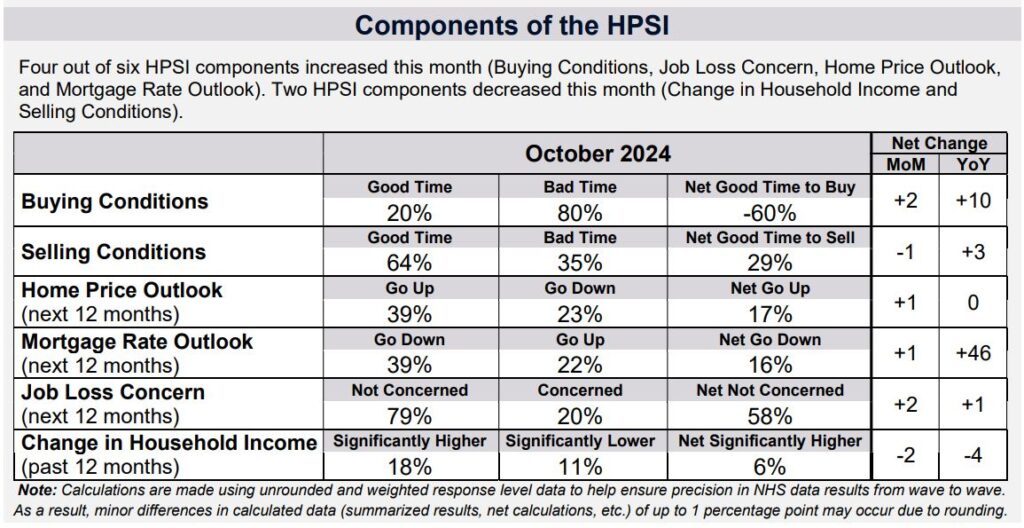Is it a good time to sell a house or should I wait until 2025?
Are you wondering if now is the right time to sell your home or if you should wait until 2025? Overall, it’s a good time to sell a home in late 2024, especially if you’re in a seller’s market, but the market is showing signs of slowing, which may continue into 2025. However, the ideal time to sell varies depending on numerous factors, including local market conditions, personal circumstances, and predictions for the future of the real estate market. Let’s dive into the details to help you make the best decision for your specific situation. Is it a good time to sell a house or should I wait until 2025? Understand the typical best time to sell a home in the US. In the United States, conventional wisdom has long been that the spring and early summer months (roughly March through June) are the optimal time to sell a house. There are a few reasons for this: Increased buyer activity: Historically, the spring season sees an influx of buyers eager to move before the school year begins or enjoy the warm weather. This increased demand can translate into more potential offers and faster sales. Pleasant climate: Spring and early summer typically offer favorable weather conditions, making it easier for buyers to tour homes and participate in open houses. School Year Transition: Families often want to complete their moves before the new school year begins, leading to an increase in buying and selling activity. However, these traditional trends have been somewhat altered in recent years. The real estate market has experienced a lot of volatility, influenced by economic conditions, interest rates and inventory levels. While spring and early summer can still be advantageous, it is not always a guaranteed formula for success. Current real estate market conditions (end of 2024) Source: Fannie Mae The real estate market at the end of 2024 shows some signs of cooling after a period of intense activity. While we have seen a significant improvement in housing sentiment over the past two years, according to Fannie Mae, there are some factors to consider: Consumer confidence: The Fannie Mae Home Buying Sentiment Index (HPSI) has increased, indicating that consumers are feeling a little better about the housing market. But the percentage of consumers who think it’s a good time to buy a home remains relatively low (to 20% in October 2024). Good time to sell: While there is a higher proportion of consumers who believe it is a good time to sell compared to those who believe it is a good time to buy, the proportion of sellers actually decreased slightly to 64% in October 2024 from the month former. This indicates some weakening in the sellers’ market. Mortgage rates: While mortgage rates have seen some fluctuation, they have been a major concern for potential buyers. In the first half of October 2024, consumers were slightly more optimistic about mortgage rate reductions, but a subsequent increase in rates may have impacted that sentiment. Home Price Expectations: Consumers still anticipate home prices to rise over the next 12 months. However, the net share of those anticipating price increases has increased only slightly, indicating that the rapid rise of recent years may be stabilizing. Rental Preference: A direct result of the high home prices of recent years is a growing preference for renting, especially in the context of consumers’ future housing decisions. With rental growth expected to be modest in 2025, more attractive deals may be found in the rental market. Factors to consider before selling your home in late 2024 Before making a decision about selling your home in late 2024, it is wise to consider these important factors: Local Market Conditions: Your local market will have a big impact on your ability to sell your home quickly and for a good price. If you live in a competitive market with high demand and low inventory, you may be in a more advantageous position compared to a market with a surplus of homes for sale. Talk to a real estate agent in your area to get a more accurate picture of your local market trends. Inventory levels: If your area has a greater number of homes currently for sale, you may experience more competition and a longer time on the market. On the other hand, if there is little inventory, you will probably have more bargaining power. Your personal circumstances: Your own individual situation should always be a primary consideration in any housing decision. Are you moving for work, need to downsize, or just looking for a change of pace? Interest rates: Fluctuating interest rates have a large effect on buyers’ ability to obtain a mortgage. If rates are going up, you may find a smaller pool of potential buyers and a potential impact on your sales price. In my opinion, if you need to sell, it is still a reasonable time to do so. However, the market is changing, and you may want to keep in mind that prices may not continue to rise as they did in previous years. What about waiting to sell in 2025? Many people are wondering if it would be better to postpone selling their home and wait for market conditions to improve in 2025. It’s a valid question, and here’s what I’ve been thinking and reading about it: Deceleration potential: Experts predict that the housing market could experience a modest slowdown in 2025. This could be due to factors such as higher interest rates, lower buyer demand, and a possible increase in housing inventory. Mortgage Rate Predictions: Experts predict that mortgage rates may continue to be a challenge for buyers in 2025. Economic uncertainty: The overall economic outlook remains a source of uncertainty. A possible recession or economic slowdown can have a substantial impact on the real estate market. Increased inventory: There is a possibility that more homeowners will decide to list their properties for sale in 2025, which could lead to a greater inventory of homes for sale. Should
Is it a good time to sell a house or should I wait until 2025? Read More »


